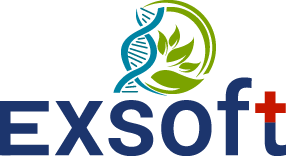
HitGen has reportedly entered into a drug discovery research collaboration with Biogen in a bid to detect novel small molecule leads for targets of interest. As per trusted sources, HitGen will bring to this collaboration its technology platform inspired by its DNA-encoded library design, interrogation and synthesis to find novel leads which will be exclusively licensed to Biogen.
According to a news report, HitGen produces the encoded libraries with the support of chemical structures and modifies them to encode each resulting compound with a DNA sequence. After that, the billions of compounds are screened against a protein to identify candidates with an affinity for the target, the report adds.
Dr. Jin Li, Chairman of the Board and CEO of HitGen was quoted saying that the company is rather delighted to collaborate with Biogen. It will further elaborate HitGen’s role in the fast-emerging field of DNA-encoded chemistry, Dr. Li added.
Dr. Li further mentioned that the company intends on working closely with Biogen’s scientists to develop new lead compounds for the research programs that will suffice unmet medical needs.
Dr. Anabella Villalobos, Biogen’s Senior VP and Head of Biotherapeutics and Medicinal Sciences stated that Biogen looks forward to the association with HitGen in order to discover novel small molecule leads through DNA encoded libraries. With this collaboration, Biogen hopes to amplify drug candidates that could eventually lead to new treatment options for patients suffering from severe neurological conditions, Dr. Villalobos added.
Reportedly, the agreement further substantiates HitGen’s arrival on the global stage. Previously, the company unveiled a sequence of deals with Boehringer Ingelheim, Sanofi, Merck, and other drug developers.
For the record, HitGen is a rapidly emerging biotechnology company based in Chengdu, China with a subsidiary in Houston, Texas. The company has fabricated a market leading platform pertaining to early-stage drug discovery research based on DNA encoded chemical libraries, cite sources.

